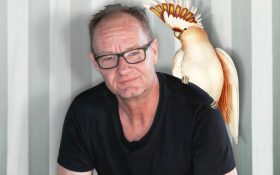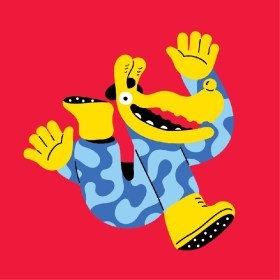‘In the current moment, I think an important aspect of leadership is the ability to embrace risk and failure,’ curator and creative producer Yasmin Masri told ArtsHub.
A graduate of the National Institution of Dramatic Art’s (NIDA) Master of Fine Arts in Cultural Leadership, Masri has had an eclectic career.
Previously working in various independent, non-profit and private sector arts contexts, Masri is currently the Arts and Cultural Development Coordinator at the City of Ryde. She believes embracing the unknown leads to further opportunities.
‘In this current uncertainty – and because business as usual is not really an option – the standard metrics that we use to measure targets are not really available in the same way,’ she said. ‘I think this time is an opportunity to embrace risk, make mistakes and try out new models.’
These new models require us to forge ahead, adapt and apply new technologies. ‘Whether we like it or not we are seeing the golden age of digital,’ Masri reflected.
Masri has found that, ‘the way digital audiences engage and participate just isn’t the same as in a live environment.’
However, she was excited, ‘to find potential in the kind of texture and quality of digital platforms and experiences, and the opportunities that exist there.’
Masri also noted that artists need to embrace the digital space. ‘It doesn’t have to be radical. Doing digital better could be just updating your website or starting a social media account.’
‘In my job I’m often looking for artists to program and might have to pitch them to other people as well. One of the biggest challenges is when artists don’t have clear representation of their work online. It’s a barrier to getting opportunities that can be easily addressed,’ she said.
Connections and networking in the arts space
A natural leader can adapt and learn. As an independent producer Masri wanted to understand the spaces she was working in and saw the NIDA course as a chance to do that.
‘I wanted to expand out my understanding of the arts world. I come from a discipline background – I studied craft and design – but I was starting to work more in a programming and producing context. I wanted to get the skills and understanding to better equip me in that space,’ she told ArtsHub.
‘The Cultural Leadership course at NIDA gave me a broader context of what’s going on in the art landscape at a national level. It made me realise the value of the perspective that the independent sector brings.’
The collaboration and cooperation reflected within the arts industry gave Masri the confidence in advocating for the independent sector from a new perspective.
‘It’s really about working from a position of collaborating and sharing. I think more so now than ever everyone is learning; everyone has limited resources. It’s really important to find partners that have the same values, the same aspirations, and to work together to consolidate what you’re doing and to amplify that out.’
The Master of Fine Arts in Cultural Leadership allows for the interrogation of the cultural sector. This course is offered part-time over a 30-month period and is designed to align with the participant’s arts career.
Masri said, ‘I really liked the model of the course as it’s part-time. You have four intensives during the year, but the rest is done remotely as you continue in your career position. And I think it’s really valuable to be part of a national cohort. When I did the course I was actually living in Canberra and travelled overseas.’
The connections Masri made at NIDA were one of the most important parts of her journey. ‘The number one reason to do the course is the amazing people that you come into contact with. That’s the teaching staff and the guest lecturers. But also it’s the peer group that you go through with that is really important,’ she said.
‘I’m really close with a lot of people I did the course with. I consider them both friends and mentors.’
Applications are now open for NIDA’s 2021 Master of Fine Arts in Cultural Leadership course.





